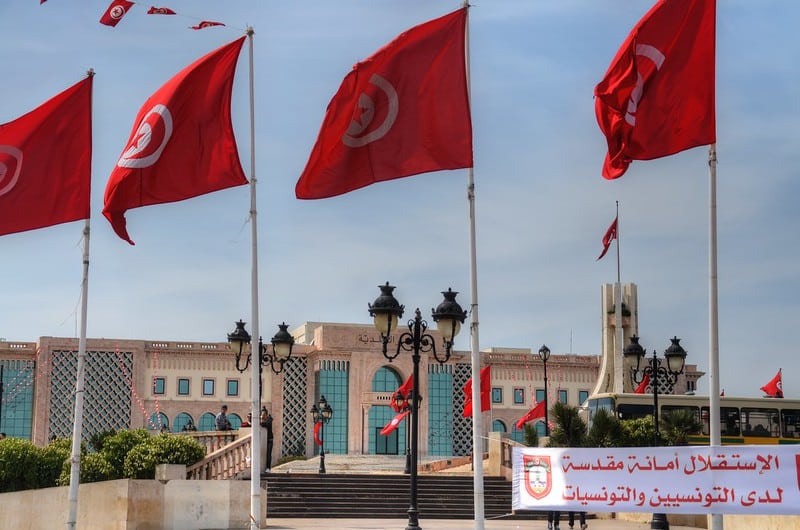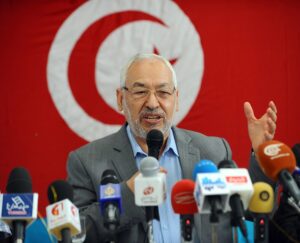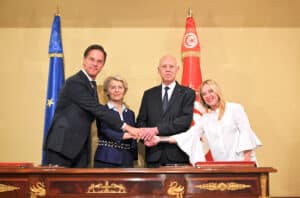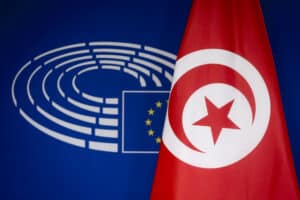On the 13th of December President Kais Saied announced a new set of measures: a referendum on the constitution will be held on July 25th 2022, followed by parliamentary elections on December 17th 2022. This announcement is seen by many as the first sign of a concrete path out of the country’s political deadlock since Saied seized power five months ago, a move that opponents have long called a ‘coup’.
The way out of political limbo?
On July 25, 2021, President Saied suspended parliament, fired the prime minister, and took control of the country, placing it under a state of emergency. Since then, he has continually lengthened the state of emergency, and in October he brushed aside much of the 2014 constitution, giving himself power to rule by decree.
President Saied has defended his actions by saying that they are needed to address a crisis of political paralysis, economic stagnation and a poor response to the coronavirus pandemic. He has promised to uphold rights and not become a dictator. Nevertheless, critics are skeptical of these promises, and domestic pressure has been mounting.
Though many Tunisians first embraced Saied’s actions as a way to move forward, as Saied claimed more and more power and the political deadlock continued, many grew tired of his leadership and protests started occurring. This announcement of a new constitution is now seen by some as hopefully a way out of the political limbo, and a proper move forward after months of stagnation.
The 2014 constitution deemed inappropriate
Saied’s desire for a new constitution does not come as a surprise for many. President Saied has long criticized the 2014 constitution, set up after the fall of Zine el-Abidine Ben Ali, the former dictator of Tunisia who fell as a result of the 2011 Arab Spring. Saied has long advocated a so-called hourglass-shaped political system, a system Saied says empowers the local people. Under this system, Tunisian civilians would elect neighbourhood-level local councils, from which regional and national representatives would be drawn by lottery. Next to these local councils, the president would oversee foreign policy, the military, and the country’s ‘overall path’.
Saied has now emphasized the sovereignty of the people, and the importance of respecting it in the making of a constitution. On the 13th of December Saied highlighted this when speaking to the cabinet: “If it’s not possible for the sovereign people to practice its rights in the framework of a text, then there needs to be a new text.”
In order to draw up a new constitution, Saied has said that a nationwide consultation will take place from January 1st to March 20th. During this time, suggestions from citizens would be gathered for constitutional (and other) reforms. A committee of experts would then be appointed to draft a new constitution for June, a month ahead of the referendum.
Critics
There was no immediate comment from some of Saied’s biggest critics. Both Ennahda, the biggest party in the frozen parliament, and UGTT, the Tunisian General Labour Union, have so far remained silent. However, Mohammed Abou, a former minister, has openly called Saied’s move a violation of the constitution, amounting to a coup. Though the move may enable Tunisia to reclaim connections with the IMF and through that improve Tunisia’s dramatic economic situation, uncertainty for the coming months lingers.
Sources: TAP, Reuters, NYTimes, AlJazeera
Photo: Flickr



